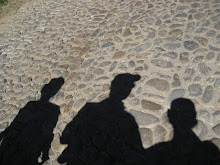Okay- firstly, all I can say is poor Africa. Scrambled eggs. Scrambled brains. The map on page 808 shows Africa around 1886, only 2 years after the Berlin Conference, and Africa is divided up into lots of sections controlled by the French, Italian, Spanish, British, Portuguese, Turks, Boer, Germans, and indigenous powers. Clearly, Africa was very sought after territory due to the available resources, labor, and the new market available. This continent basically got torn apart by competitive and greedy Europeans in search for palm oil, rubber, or minerals such as DIAMONDS. Now whenever I think of Europeans wanting diamonds- the British "tycoon, colonial political, and imperial visionary Cecil Rhodes" comes to mind because he made a fortune from the South African diamond mines and the company he founded in the 1880's called DeBeers (810). Another reason that I say poor Africa is because of the whole situation with the Congo Free State that was set up in 1884 at the Berlin Conference, which was headed by Otto Von Bismarck and attended "by all leading colonial nations as well as by the United States" (806). The Congo Free State was supposed to be a great example of liberalism because it was going to have free trade and commerce, the slave trade would be suppressed in favor of free labor, and no single European country would have access to any formal control over the region. However, did any of this stuff actually get put into place? NO!! In reality "the Congo Free State was run by Leopold's (Belgian) private company, and the region was opened up to unrestricted exploitation by a series of large European corporations" (806). Also even though the older slave trade was suppressed, "the Europeans still took 'the free" African labor guaranteed in Berlin and placed workers in equally bad conditions" (806).
When Africans rebelled, for example the Herero people of German Southwest Africa, the Germans "responded with a vicious campaign of village burning and ethnic killed that nearly annihilated the Herero" (810). Honestly, the ethnic killing was definitely not necessary and over the top. People, for all of eternity, are going to keep rising up against their oppressors- but it is the way that the oppressors deal with the rebellion that will either reflect positively or negatively on them. After this ethnic killing- I look down on Germany!
Finally, this section of the book mentions how imperialism entered into the European culture. Well, I find it quite horrible that the Europeans just decided to live in decadence while Africans suffered in horrible work conditions to mine and harvest goods that Europeans wanted. Also- imperialism seemed to bring up a lot of discussions about racial inferiority and many discussions lead by anti-imperialists.
Basically, my overall idea about this section of the reading was that Africa was torn apart, ripped apart by Britain, France, Germany, etc... and spit out like scrambled brains!!

No comments:
Post a Comment